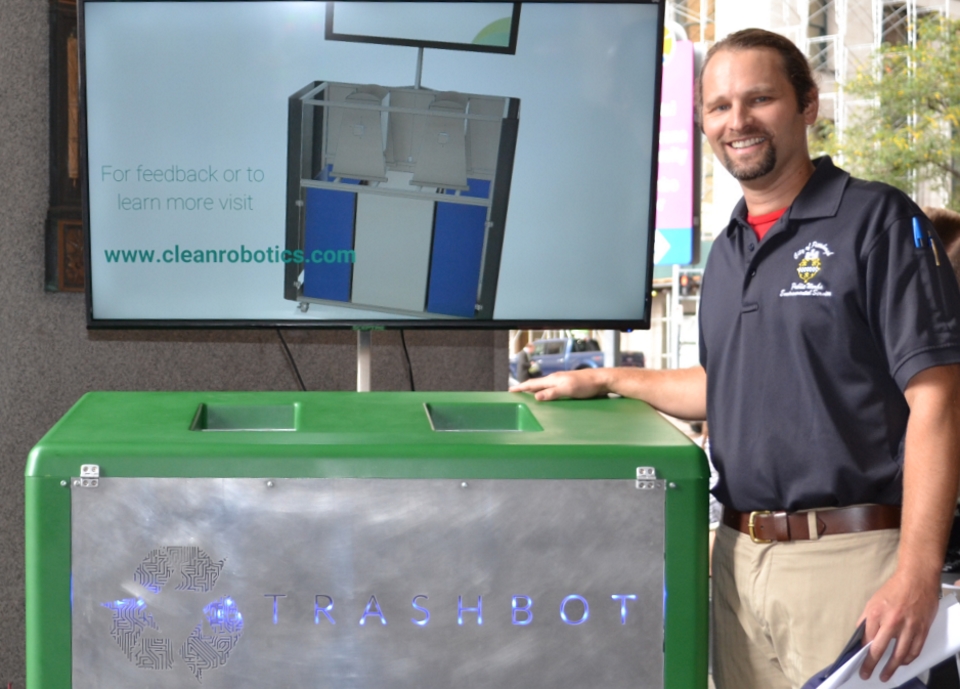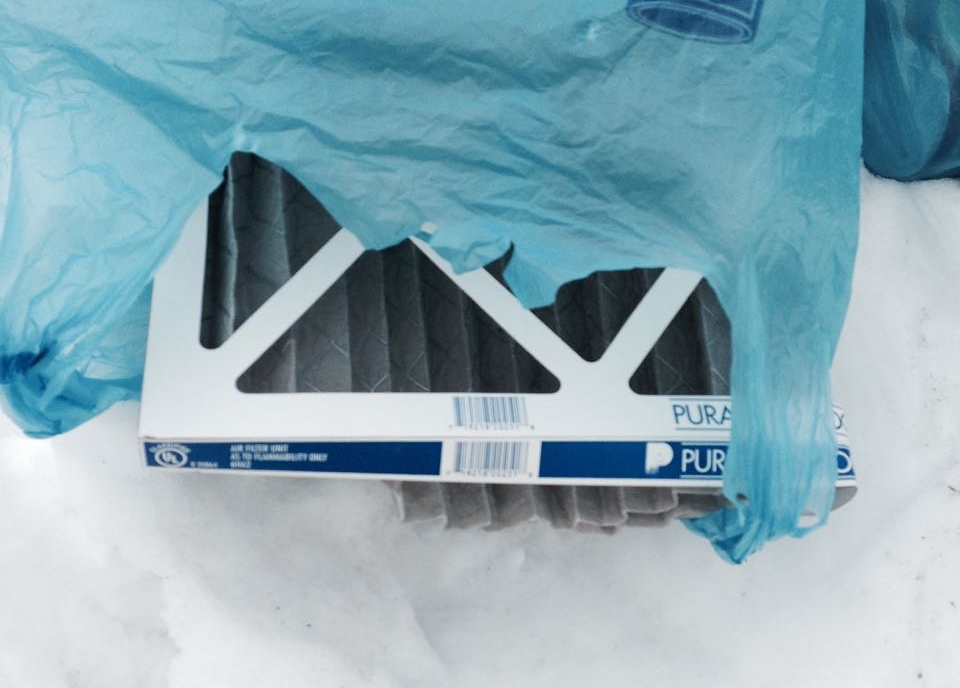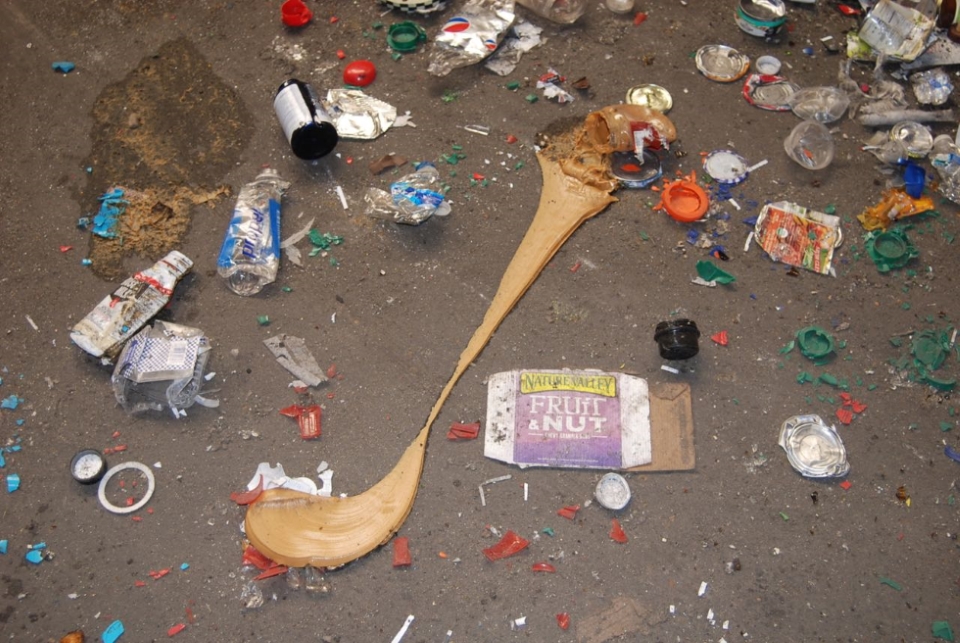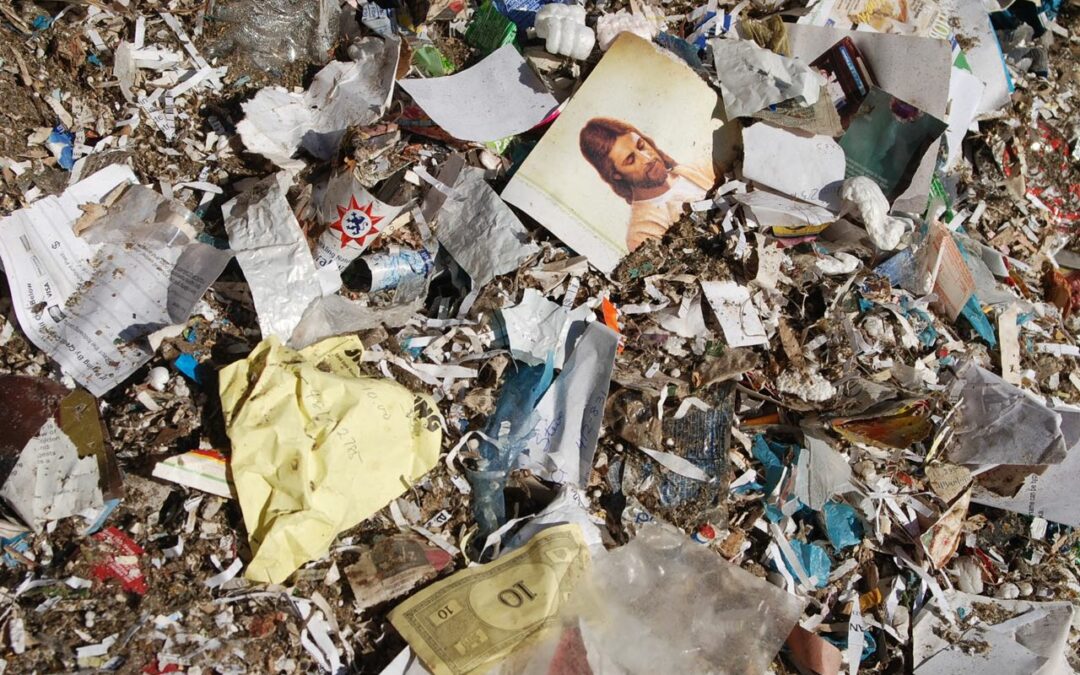Recycling can be a really messy problem. Not just literally, as when you need to clean out your jars of peanut butter, but also mentally. Have you ever wondered where greasy pizza boxes go? Or agonized over whether or not a plastic fork is recyclable? Unfortunately, the answer changes from municipality to municipality, and possibly even from building to building! Given these constant rule changes, it’s no wonder that only 34.3% of recyclable materials were recovered nationwide in 2013.
We at CleanRobotics seek to significantly improve landfill diversion rates and materials recovery rates with our smart waste receptacle, the TrashBot, which automatically sorts recyclables from landfill waste. We’ll be deploying our TrashBots in various pilots throughout the coming months (look out for them!), but in the meantime, we wanted to give you some guidelines and answer your burning questions about how to recycle and why the rules keep changing! We sat down with the Pittsburgh Department of Public Works’ Recycling Supervisor, Kyle Winkler, and asked him to give us the low-down on recycling in Pittsburgh.

When asked how Pittsburgh is doing, recycling-wise, Kyle suggested that there “needs to be improvement, both in terms of how it’s measured and overall.” Kyle estimates that the Pittsburgh diversion rate (percentage of recycling recovered from the total waste generated) is only around 17%. This number is less than half of the national average, and is not nearly as optimistic-sounding as the 72% “participation rate” touted in this 2015 Pittsburgh Post-Gazette article.
Kyle believes that the key to bringing the diversion rate up is “to improve educational outreach around recycling. We need more folks dedicated to education on recycling and waste management, and more resources for the public.” At the moment, residents receive an annual mailer that includes a brief recycling guide and calendar (this year’s here). There’s also the PGH.ST web app, which has information on recycling pick-up schedules (fun fact: recycling only happens once every other week, so if you’ve been putting out your recycling every week, half of your recycling is going to the landfill!), but there are no definitive guides or resources that residents can refer to for the purposes of sorting very specific items. This lack of resources translates into a lack of understanding by the public regarding proper recycling. That’s what we at CleanRobotics seek to fix, by finding out the answers and using TrashBot to provide feedback to users regarding where their waste items belong.
Unfortunately, TrashBot is not yet widely available. If you do have unanswered questions about recycling, your only recourse is to contact the Recycling Division of the Department of Public Works. In the meantime, we asked Kyle to help us figure out how to recycle properly in Pittsburgh! Here are our notes.
Before we jump into it, it’s important to understand that the limitations on what’s recyclable are due to differences in waste management facilities, especially in the case of single-stream recycling. The residential waste (for buildings with fewer than five family units) that is handled by the city of Pittsburgh primarily goes to the materials recovery facility in Hazelwood. Thus, the single-stream sorting process and machinery at the Hazelwood facility affect what you can and can’t recycle. For example, at the Hazelwood facility, glass is removed from the stream early on in the process, which also leads to the removal of small items like scraps of paper and bottle caps (see video below). Keep in mind that if your recycling is going to Neville Island (as in the case of some facilities with private waste haulers, such as office buildings or apartment buildings with more than five units), these rules may be different. Stay tuned for more info on this – CleanRobotics is on the case!
If your waste is going to Hazelwood, here are some heuristics that you can use to sort your waste more accurately than you probably already are:
- Plastics #1 – 5 are okay to recycle, as long as they fit the criteria below. Steer clear of #6 and #7, for now.
- Food containers (plastic, metal) are generally okay, as long as they aren’t too small or too large. Examples of items that are too small: 5 Hour Energy bottles and yogurt lids. Too large: buckets or plastic bins (over 3 gallons). No plastic wrappers or filmy materials (like bags).
- Mixed paper is fine, as long as it’s not too small (no receipts or post-it notes), and not contaminated. No food residue or liquid.
DON’T PUT IN CURBSIDE RECYCLING (at least, for now):
- plastic bags
- metal that isn’t an aluminum, tin, or steel can (no tools, pots, pans, etc.)
- paper food service items (paper plates, napkins – though these are likely compostable)
- Tetra Paks or other aseptic packaging (though these may be recyclable in the near future)
- small pieces of paper, like receipts or post-it notes
- plastic bottles that are too small (5 Hour Energy bottles or medicine bottles)
- ceramics (these are not recyclable!) The list goes on and on, but we asked Kyle for the most common items. Kyle has also noticed a number of unusual items, such as HVAC air filters, which look like they might be recyclable, but aren’t. “They look like they’re made of cardboard, but they have metal and other materials inside, and we can’t recycle them,” says Kyle. “Also, plastic hangers are not recyclable. No plastic crates, either.” Note that these rules are subject to change as facilities buy more equipment or change their sorting practices, so keep your eyes peeled.

General recycling tips from Kyle, applicable for all materials recovery facilities and recycling programs:
- Use BIG blue bags (not small blue grocery bags) for recycling – or better yet, no bags at all (use a bin)! And definitely don’t tie the small blue bags together in a “bag snake” – those will almost certainly get thrown out.
- If you do use a bin, place lighter items in the bottom (like paper) and heavier items on top so that they don’t get blown away when you place the bin curbside.
- You can recycle metal caps (e.g. from glass bottles) or steel can lids (e.g. soup can lids), but place all of these items into a steel can and crush the top to keep them all together in the can.
- You can also recycle broken bottle glass, but only from bottles – don’t recycle broken stemware, mirrors, plates, etc.
- Leave bottle caps on plastic soda bottles – it’s fine!
- Rinse out your items if you can…but you don’t HAVE to. Humans down the line would really appreciate it if you could rinse out your jars and bottles, especially if they formerly contained sugary liquids or solids, as the sugars tend to attract vermin. But, if you have a tiny bit of food residue left over, you can put it in the recycling bin. Don’t even think about it if there’s a lot of food left in the container.

If your apartment building doesn’t have a recycling program, you may have to take your recyclables to a drop-off center. See a list of locations in Pittsburgh here.
Residents may see some additional facilities and resources soon. “We’re looking to open facilities for household hazardous waste and electronic waste, hopefully next year,” says Kyle. “We’re also looking into moving away from the blue recycling bags and providing recycling bins to residents at no or low cost, sometime in the next two years.”
At the end of the day, Kyle thinks that recycling isn’t the ultimate answer. “There needs to be a cultural shift. Stop buying single-use items.” Unfortunately, that’s easier said than done, so while we wait for consumer habits and product packaging to change, keep in mind the recycling adage, “When it doubt, throw it out!” Or, just use a TrashBot.
Kyle leaves us with these words to think about: “Waste items will always need to be managed, but hopefully in increasingly thoughtful ways than what we are doing now. We’ve sent folks to the moon, landed reusable booster rockets on remotely operated landing pads in the ocean, will soon have self-driving cars, but still we are designing items for trash and sending them to a hole in the ground. Seems like a system and practice that is long overdue for change.”
Thanks for shedding some much-needed light on recycling in Pittsburgh, Kyle!

